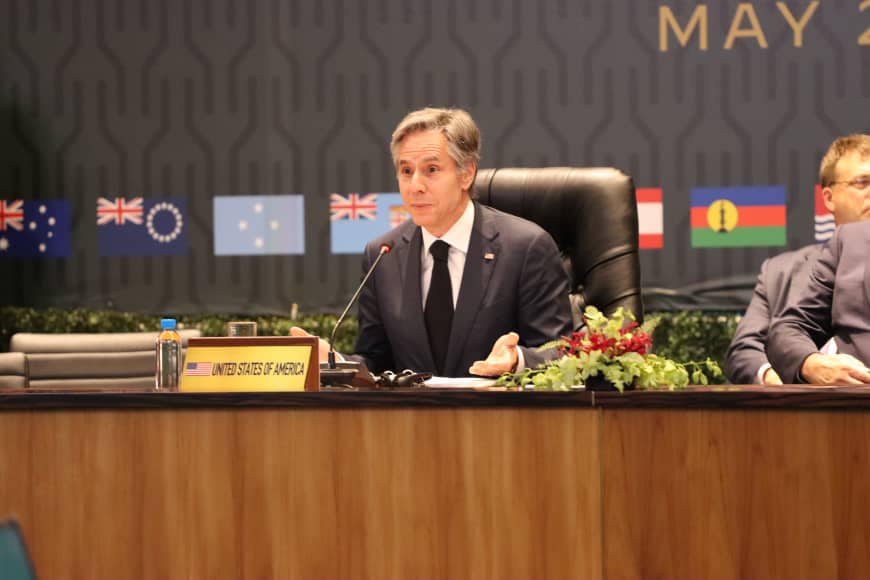The United States is aware of the needs of its development partners in the Pacific and will set up embassies in all island nations, says secretary of state Antony Blinken.
“Work is being done to ensure that the U.S is accessible to its partners in the Pacific,” Blinken said.
“Having embassies in these countries will strengthen bilateral relations with the U.S.”
He was responding to Prime Minister James Marape’s call for a “clear line to Washington”.
Marape, on behalf of the Pacific Island nations attending the U.S-Pacific Islands Forum, said they wanted a more direct line to the United States.
Blinken said the U.S was aware of the needs of its development partners in the Pacific and planned to set up embassies in all Pacific countries which did not have one.
He said the future of the world was in the Pacific where climate change was felt the most.
He said US$7.1 billion had been allocated to set up the embassies and for economic assistance over the next two decades.
He also passed on an invitation from U.S President Joe Biden to all Pacific leaders to attend a second Pacific Islands Summit in Washington at the end of the year.
“We also have shared priorities such as tackling the climate crisis, advancing inclusive economic growth for the people of the Pacific Islands, and highlighting the US commitment to realise a prosperous, resilient, and secure Pacific Islands region in support of the Pacific Islands Forum 2050 Strategy for the Blue Pacific Continent,” he said.
Meanwhile, the United States will continue to strengthen economic relations, security cooperation, and people-to-people ties with Papua New Guinea, a U.S Government statement says.
It will also promote inclusive and sustainable development, and plans to work with Congress in providing more than US$45 million in new programmes.
The statement from the state department added that it planned to provide an additional US$10 million (about K35.33 million) to implement the strategy to prevent conflict and promote stability in PNG.
The total planned funding would be US$30 million (about K105 million) over three years.
On 24 March, U.S President Joe Biden sent to congress the 10-year plan for implementing the strategy in PNG.
The plan will align and integrate US activities in PNG to address the shared objectives of:
*Strengthening community capacity to prevent, mitigate, and respond to violence, including gender-based violence;
*Supporting sustainable and equitable economic growth; and,
*Improving justice systems and professionalising security forces.
The statement added that the United States Census Bureau, through support from USAid, would work with the PNG National Statistics Office to strengthen its statistical capacity to produce high-quality census data, which will support domestic programming and service delivery as well as elections.
Through USAid, the United States will also provide an additional US$12.5 million (about K44 million) to help PNG strengthen the resources and systems needed to make communities more climate-resilient.
USAid plans to increase PNG’s access to renewable energy and climate resilient water, sanitation, and hygiene (Wash) systems, support nature-based solutions, and protect the country’s biodiversity.
The state department also plans to provide US$1.25 million (K4.41 million) in technical assistance and expert advisory support to build PNG’s institutional capacity to strengthen investment and regulatory frameworks, support competitive and transparent tender processes for mineral resource assets, undertake mineral resource geoscience capacity building, and develop sustainable mining sector strategies.
SOURCE: THE NATIONAL/PACNEWS














